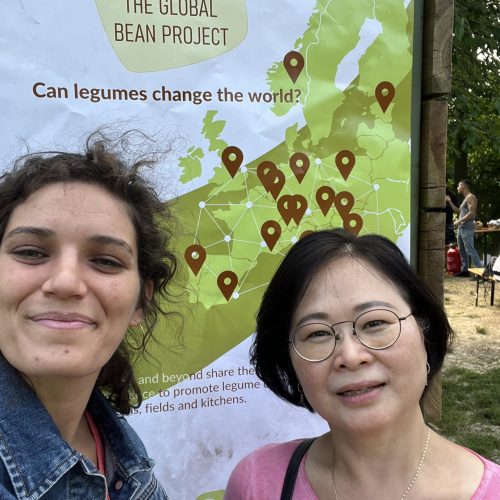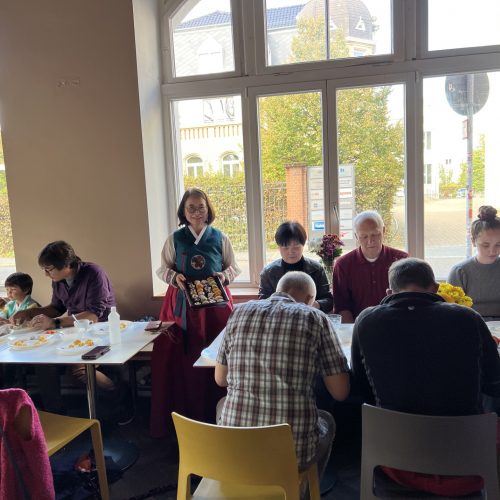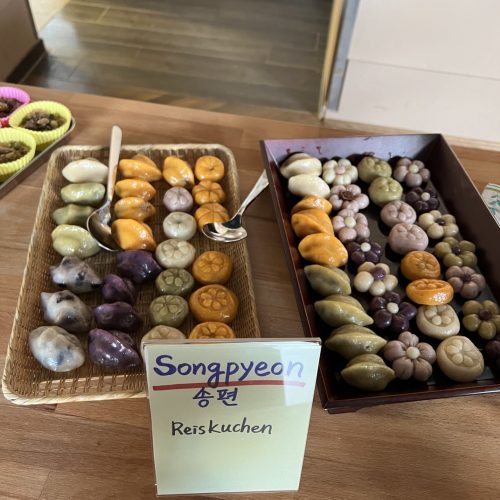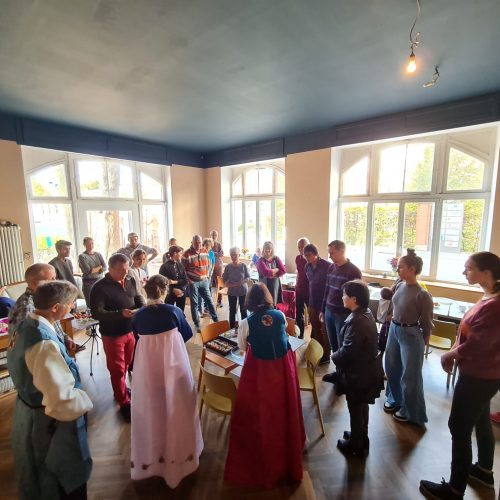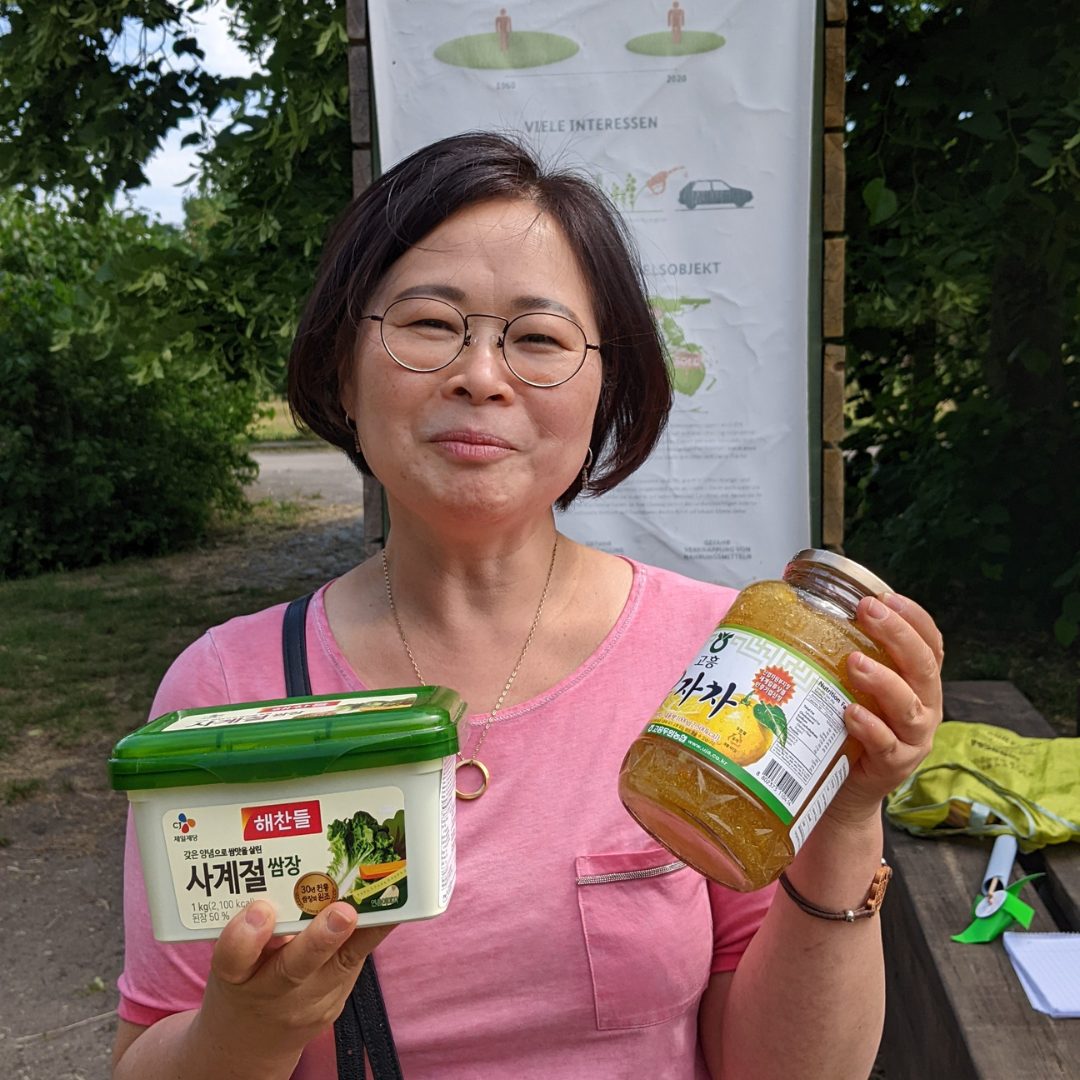My name is Sungsook Park, I'm from South Korea. I majored in food and nutrition in Seoul and have conducted public health research in Korea, Japan and Canada.
For the past eight years, I live in Heidelberg with my German husband. My passion for cooking has driven my active participation in various culinary events. I’ve established Korean food booths at international festivals, introduced Korean cuisine to the elderly at the local senior welfare center, and conducted Korean cooking classes at VHS (adult education center). I'm also an active member of culinary organizations like Slowfood and Über den Tellerrand Heidelberg.
Around two years ago, I joined the Heidelberg Nutrition Committee (Ernährungsrat Heidelberg), gaining valuable insights into sustainable nutrition practices in Germany. Our organization is dedicated to promoting the ecological, climate-friendly, and socially just transformation of Heidelberg's food system and the surrounding region.
Our organization is committed to transforming Heidelberg's food system ecologically, promoting climate-friendly practices and social justice. In collaboration with the city of Heidelberg's Department of Climate Protection, Environment, and Mobility.
This year, I organized rice workshops as part of the Weltacker project in BUGA 23 Mannheim (German national garden show). Thanks to this, I had the opportunity to connect with the Global Bean Project and initiate the rice project. This, in turn, enabled me to conduct cooking classes at local youth centers (Jugendzentrum).
My aim is to introduce wholesome Korean planetary diets that incorporate regional and seasonal vegetables, nutritious beans, and various rice options. I'm eager to share the pleasures of healthy Korean cuisine with both children and adults in Germany.
The soybean industry plays a crucial role in addressing global concerns about carbon neutrality and sustainable agriculture. Soybeans help reduce the need for fertilizer by fixing nitrogen in the soil, promoting low-carbon diets by substituting traditional meat with soy-based alternatives.
Korea has a rich history of soybean consumption, with each person consuming over 6.3 kg in 2022. Traditional Korean fermented dishes, including meju, soybean paste, soy sauce and tofu, showcase the wide range of products that can be made from soybeans. I intend to promote legume consumption by sharing these culinary traditions and experiences.
Korea is home to unique institutions like the world's first “Soy World Science Museum” and events like Soybean Day (Feb.2) and soybean-related festivals, promoting soybean consumption. As a coordinator, my goal is to connect these initiatives with our Global Bean Project partners.
I've been actively involved in the Global Bean Project since March 2023. It's been a valuable experience, allowing me to explore a diverse range of legume-based dishes beyond soybeans, learn about cultivation techniques, and engage in various activities from different countries. I was particularly impressed by an online session on making Grass Pea Miso in Portugal.
My curiosity extends to the unique traditions and customs associated with beans in each country, and I'm eager to exchange and introduce these cultural aspects.
Additionally, I'm keen to expand my knowledge about the various processed foods derived from legumes. Notably, soybeans are no longer limited to food; they are increasingly being transformed into eco-friendly industrial materials. I would like to stay informed about the latest advancements in eco-friendly food materials within our network.
October 2023


